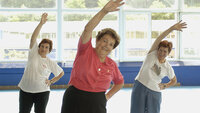Translation and psychometric testing of the Family Collaboration Scale
The instrument measures the collaboration between healthcare personnel and the relatives of frail elderly patients in acute hospital wards. Having a Norwegian version of the instrument will mean it can be used in our clinical practice and research.














